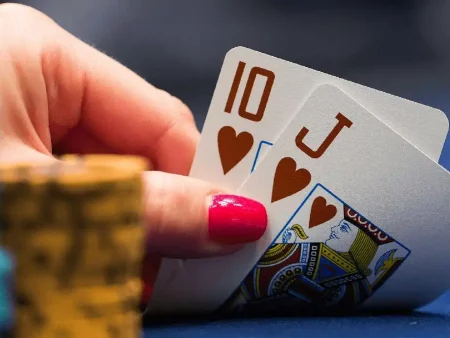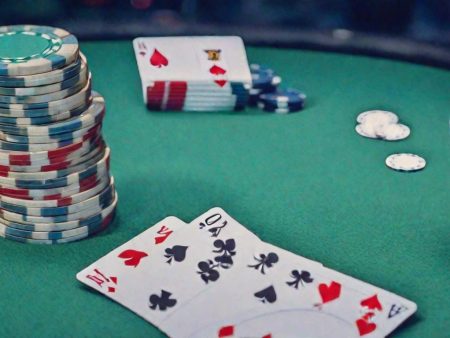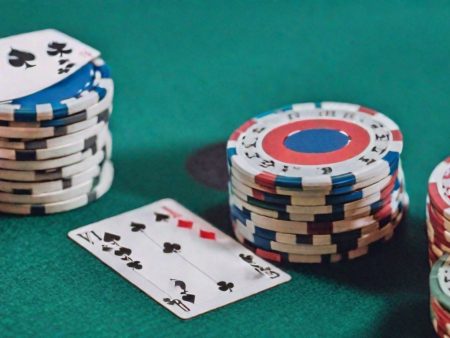A flat call, also known as a “situational call,” is one of the key concepts in poker. It involves simply matching an opponent’s bet without raising. This move plays a significant role in a player’s strategic toolkit. To understand when and how to use a flat call, let’s explore what it is, when to apply it, and the key factors to consider.
What is a Flat Call?
In poker, the term “flat call” means that a player matches an opponent’s bet without increasing it. In other words, if your opponent places a bet, you choose to match it exactly and stay in the game. This can occur at any stage of the hand: preflop, flop, turn, or river. To be successful in poker, it’s crucial not only to know the rules but also to understand the strategy behind the moves. A flat call is a key decision that allows you to remain in the game without raising the stakes. Let’s look at the situations where making a flat call might be a smart move.
Read also: What is a cooler in poker and how to avoid too expensive calls.
During the early stages of the game, before the cards are dealt, players can call the big blind to stay in the hand. Later, on the flop, turn, and river, they can choose to call, raise, or fold. It’s important to remember that calling allows you to continue the hand without increasing the bet or taking unnecessary risks if your hand isn’t strong enough. When another player raises, the next participant may decide to make a re-raise. In this case, if you want to stay in the game, you’ll need to call the re-raise by adding the difference. The amount you need to call depends on your opponent’s actions.
When Should You Choose Flat Call Over Other Actions?
Choosing flat call requires considering several important factors. Here’s what you need to keep in mind when making this decision:
- Assessing Your Hand. Everything starts with evaluating your cards. If you feel confident in your hand, raising might be the better choice. However, if your hand isn’t very strong, a flat call can be a safer option, allowing you to continue without risking too much.
- Your Position at the Table. Where you are sitting at the table matters. Players who are closer to the dealer button have an advantage since they can observe how others act before making their own decisions.
- Your Opponents’ Playstyle. Pay attention to how your opponents are playing. If they are aggressive, be cautious. If they are passive, a flat call may be a safer move to continue the hand.
- Bet Size and Pot Size. The size of the bets and the pot can greatly influence your decision. The larger the pot, the greater the potential rewards, but also the risks. You need to assess whether continuing the hand is worthwhile based on the potential payout.
- Your Stack. The size of your stack also plays a role in your strategy. If you have a large stack, you might feel more comfortable with a more aggressive approach. However, if your stack is small, you’ll need to play more conservatively and carefully select your spots for calling.
- Managing Emotions and Bluffing. Keep in mind that your opponents may be bluffing or acting uncertain. Try to read their behavior and adjust accordingly.
- Strategy and Planning. Never enter a hand without a clear strategy. Having a game plan in place helps you make more informed decisions and avoid acting on impulse.
- Bankroll Management. Always play within your means. Never risk money you can’t afford to lose.
Read also: What is a call in poker?
How to Improve Your Chances with a Flat Call?
A flat call is not just a “basic” move — it’s an essential part of poker strategy that helps you maintain stability in the game and avoid unnecessary risks. Pay attention to your opponents’ actions, adapt your strategy as needed, and never forget to manage your chips wisely.
In conclusion, the flat call is a crucial element in poker strategy that allows you to make informed decisions and maintain control of the game. Whether you’re on the preflop or the river, knowing when and how to use a flat call can significantly increase your chances of success. Interested in gambling? Then visit the comprehensive gambling guide – everything you need to know to play smart!
FAQ: What is a Flat Call in Poker
What is a flat call in poker?
A flat call is when a player matches the current bet without raising, despite potentially having a strong hand.
This tactic is often used to disguise the strength of a hand or to keep more players in the pot.
Why do players use flat calls?
Players use flat calls to avoid scaring off opponents and to trap them into committing more chips to the pot.
It’s a way to maximize value from strong hands or to play cautiously with drawing hands.
When is a flat call a good strategy?
A flat call can be effective in early positions to control the pot size or when facing aggressive opponents.
It’s also useful in multi-way pots where raising might isolate you against stronger hands.
What are the risks of flat calling in poker?
Flat calling can give your opponents favorable odds to see the next card, potentially improving their hands.
It can also lead to situations where you’re unsure of your standing in the hand, especially against multiple opponents.
How does flat calling differ from other actions in poker?
Unlike a raise, a flat call doesn’t increase the pot size or apply pressure on opponents.
It’s a more passive action, often chosen for strategic reasons like deception or pot control.
Is flat calling common in tournament poker?
Yes, flat calling is common in tournaments, where managing your chip stack and avoiding unnecessary risks are crucial.
It’s often used to conserve chips and evaluate the strength of opponents’ hands.
Can flat calling be a bluff?
While uncommon, flat calling can occasionally be used as a deceptive bluff.
For example, it can represent a drawing hand when you’re planning to bet aggressively on later streets.






